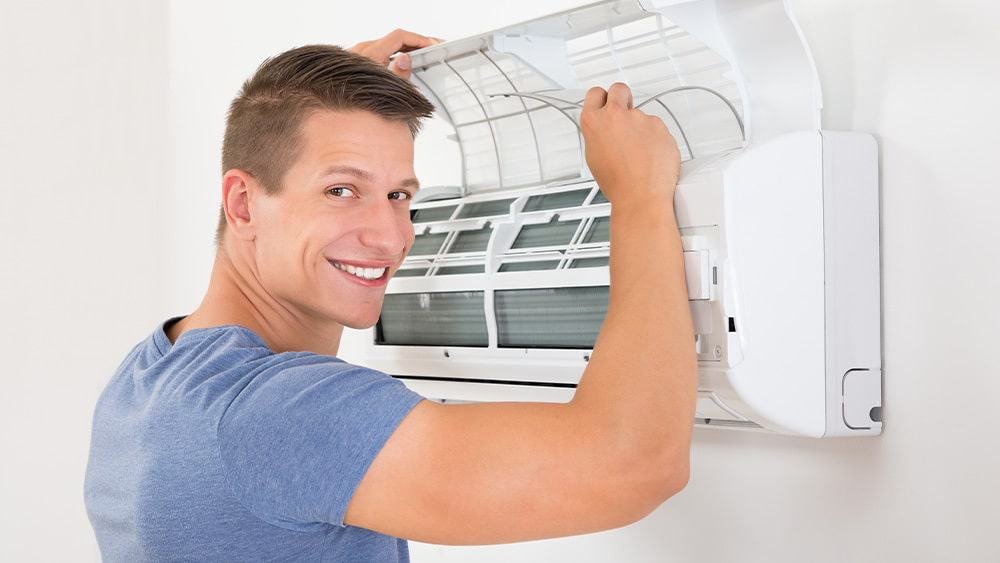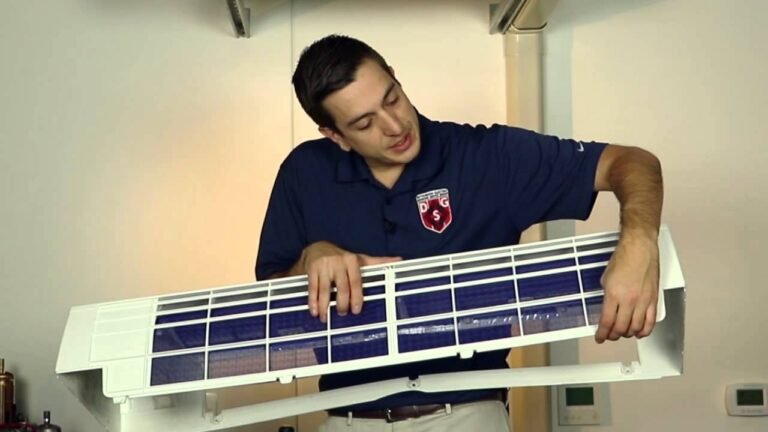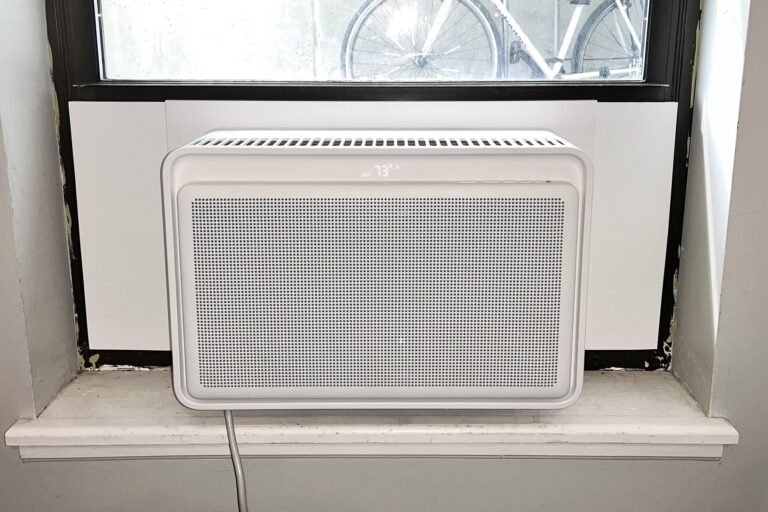Does Air Conditioner Purify Air? The Ultimate Guide
Air conditioners do not purify air by themselves; they require the help of a filter to remove pollutants and debris from the air. While air conditioners can make the air feel cooler and more refreshing, they are not effective at removing indoor air pollution.
This is where an air purifier comes in, as it is specifically designed to filter and purify the air by removing pollutants, allergens, and odors. Unlike air conditioners, air purifiers can effectively improve indoor air quality by capturing and eliminating harmful particles in the air.
So, if you want to ensure clean and pure air in your home, investing in an air purifier is essential.

Credit: www.robertbpayne.com
How Does An Air Conditioner Work?
Your air conditioner works hard to keep the heat out, but it won’t keep pollutants and debris out of the air—at least, not without the help of a filter. The cooling mechanism of an air conditioner involves drawing warm air from the room, passing it over evaporator coils containing a refrigerant, and then releasing cool air back into the room. This process helps to maintain a comfortable temperature indoors.
As part of its operation, an air conditioner circulates air within the room. It uses a fan to draw air into the unit and disperse it through a structure. However, it does not bring in fresh air from the outside. Instead, it recirculates the indoor air, which means that any pollutants or contaminants present in the room air will not be filtered out unless the air conditioner is equipped with an effective filter.
The role of filters in an air conditioner is vital for purifying the air. Air conditioner filters are designed to capture larger particles such as dust, pollen, and pet dander. However, they may not be effective in filtering out smaller particles or pollutants like smoke. To effectively purify the air and remove indoor air pollution, it is recommended to use an air purifier in conjunction with an air conditioner. Air purifiers are specifically designed to remove microscopic pollutants and improve indoor air quality.
Air Conditioner Filters: Types And Functions
Does an air conditioner purify the air? This question is often asked by individuals looking to improve the indoor air quality in their homes or offices. The answer is that while air conditioners can help to filter certain pollutants and particles from the air, they are not designed to function as air purifiers.
Air conditioner filters play a key role in trapping debris and larger particles from entering the system. There are different types of filters available, including HEPA filters, electrostatic filters, and activated carbon filters.
HEPA filters, also known as High-Efficiency Particulate Air filters, are considered to be the most effective in removing tiny particles such as dust, pollen, pet dander, and mold spores from the air. These filters use densely packed fibers to capture and trap particles, providing cleaner air for individuals with respiratory issues or allergies.
On the other hand, electrostatic filters use static electricity to attract and trap particles, preventing them from circulating in the air. These filters are washable and reusable, but they may not be as effective as HEPA filters in capturing smaller particles.
Activated carbon filters are designed to remove odors, gases, and volatile organic compounds (VOCs) from the air. These filters contain carbon granules or pellets that absorb and neutralize these pollutants, improving the air quality.
In conclusion, while air conditioners with filters can help improve indoor air quality to some extent, they are not a substitute for dedicated air purifiers. If you have concerns about airborne pollutants or allergens, it is recommended to use a combination of air purifiers and air conditioners for optimal air quality.
Can An Air Conditioner Serve As An Air Purifier?
Can an Air Conditioner Serve as an Air Purifier?
Air conditioners have limited air purification capabilities. While they use filters to trap larger particles, they may not effectively remove volatile organic compounds (VOCs), odors, or microscopic pollutants. Therefore, solely relying on an air conditioner for air purification purposes may not be sufficient.
Limitations of air conditioner filters:
- Air conditioners primarily focus on cooling and recirculating indoor air.
- Their filters may remove larger particles, but they may not filter out smoke particles or capture all types of indoor air pollutants.
Effectiveness in removing pollutants:
An air conditioner filter can help remove larger particles, such as dust and pet dander. However, finer particles, such as smoke particles, may not be fully filtered out. For comprehensive air purification, it is advisable to consider using a dedicated air purifier.
Comparison with dedicated air purifiers:
Air purifiers are specifically designed to remove a wide range of pollutants, including VOCs, odors, allergens, and fine particles. They typically use multiple filtration technologies, such as HEPA filters, activated carbon filters, and UV-C light, to provide efficient air purification.
Frequently Asked Questions Of Does Air Conditioner Purify Air
Can Air Conditioner Work As Air Purifier?
No, an air conditioner does not work as an air purifier. It can cool the air but cannot effectively remove pollutants without the help of a filter. An air purifier is specifically designed to remove indoor air pollution.
Do I Need An Air Purifier If I Have Air Conditioner?
An air conditioner alone doesn’t effectively remove indoor air pollution. You may need an air purifier to filter out pollutants and debris from the air. Air conditioners only cool and circulate the air, while air purifiers are designed to remove contaminants.
Does An Air Conditioner Bring In Fresh Air?
No, an air conditioner does not bring in fresh air from the outside. It simply uses a fan to circulate and cool the existing air inside the unit.
Does Ac Purify Air From Smoke?
An air conditioner does help filter smoke particles from the air, but it is not fully effective. The air conditioner’s filter can remove larger particles, but it may not fully purify the air from smoke particles. Consider using an air purifier for better results in removing smoke from the air.
Conclusion
While air conditioners can help cool and circulate air, they are not designed to fully purify it. Although they have filters that can remove larger particles, they may not effectively filter out pollutants, odors, and microscopic substances. To ensure clean and healthy indoor air quality, it is recommended to use a dedicated air purifier in addition to an air conditioner.







